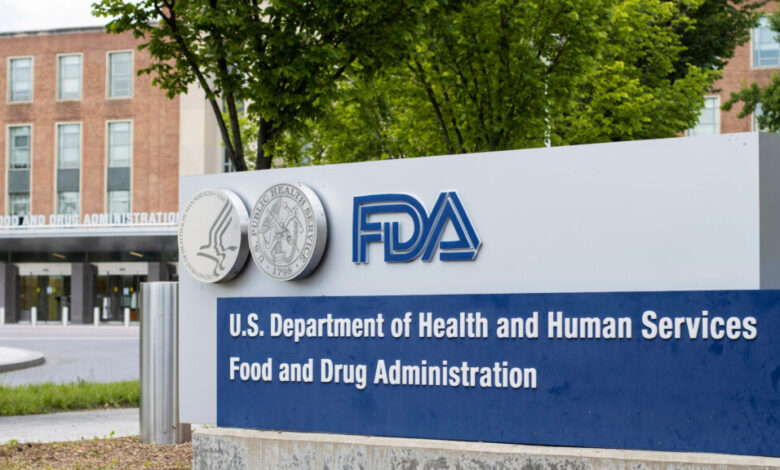Grail, Stealth, Alnylam and more

Want to stay on top of the science and politics driving biotech today? Sign up to get our biotech newsletter in your inbox.
Hi, it’s Meghana. Lots happened this past weekend! We have news for you from the annual meeting of the American Association for Cancer Research, and also from the annual meeting of the American College of Cardiology. Interesting stuff.
WHO scientists question Grail endpoint for multi-cancer test
A team of WHO scientists are questioning Grail’s approach to evaluating the efficacy of its multi-cancer early detection test, Galleri. The company is in the midst of two very large studies to determine how beneficial the test is — evaluating it in a 140,000-person trial with the U.K.’s National Health Service, and a 50,000-patient study among Medicare enrollees in the U.S. The studies are both examining how many patients given the test are diagnosed with late-stage cancer, compared to a control group that doesn’t take the test.
The WHO scientists conducted a meta-analysis, published in JAMA, that showed in the cases of lung and ovarian cancer, early diagnosis was correlated with how long patients lived. But staging only had a moderate relationship with breast cancer mortality, and a weak one with for prostate and colorectal cancer. This could have huge implications for the usefulness of a test like Galleri.
“It’s not possible to use the reduction in late-stage cancer to make assumptions about the likely reduction in cancer specific mortality,” the study’s senior author told STAT. “If what we are interested in is mortality, we probably need to measure it directly.”
Half the accelerated-approval cancer drugs don’t improve survival or quality of life
About half of the cancer drugs that win accelerated approvals don’t improve patient survival or quality of life, according to findings based on clinical trials conducted after more than five years of follow-up. Authors of the new study, which was published in JAMA, noted that the FDA’s decisions on converting accelerated approvals to full approvals have increasingly been based on less stringent evidence of a drug’s benefits.
The study’s authors, speaking at this weekend’s annual meeting of the American Association for Cancer Research, emphasized doctors should communicate to patients how uncertainty remains around many of these medicines. They want drugmakers to be more diligent about collecting quality-of-life data during confirmatory studies, and tasked the FDA with urging companies to gather better evidence that drugs demonstrate clinical benefit before seeking full approval.
FDA will review Stealth rare disease drug after all
In a turn of good fortune for Stealth BioTherapeutics, the FDA will review elamipretide, its drug for Barth syndrome. The small biotech had said that if the agency didn’t agree to review its drug for the rare disease, it would have to stop working on it. Stealth has been developing elamipretide for a decade, but has struggled to jump through the requisite regulatory hoops — thanks largely to the fact that so few patients (around 130-150 in the U.S.) are available to participate in clinical studies.
The FDA has will hold an advisory committee for the drug, though no date has been set yet. It didn’t issue a priority review, however, which might delay any approval.
Why cancer rates are rising among the young
Cancer is becoming increasingly prevalent among younger people. New evidence presented at AACR suggests why that may be the case: On a cellular level, younger generations seem to be aging faster than their forebears. Scientists looked at nine blood-based markers in nearly 150,000 people ages 37 to 54, and calculated their biological age.
They found that people born after 1965 were more likely to have an older biological age than their chronological age. People with higher rates of accelerated chronological age had a 17% increased chance of developing solid tumor cancers. The study didn’t explain why younger generations might be aging faster biologically, or whether this process can be reversed. These are questions the study’s authors will look at in future work.
Alnylam drug lowers blood pressure, but will it be used?
An experimental Alnylam Pharmaceuticals drug reduced blood pressure over a long period when taken with the inexpensive pills used commonly for hypertension. But there are questions about how the RNAi drug, zilebesiran, could actually be used in clinical practice. Although the drug, which is taken twice yearly, seems to be effective in reducing blood pressure, it is costly — and insurers may be reticent to cover it.
Alnylam CMO Pushkal Gang told STAT that Alnylam will try and emphasize how the medicine could help the highest-risk populations.
“We want to show that being on a zilebesiran-based regimen reduces cardiovascular events, and that’s beneficial for patients, it’s beneficial for society, and ultimately beneficial for payer systems as well,” he said.



